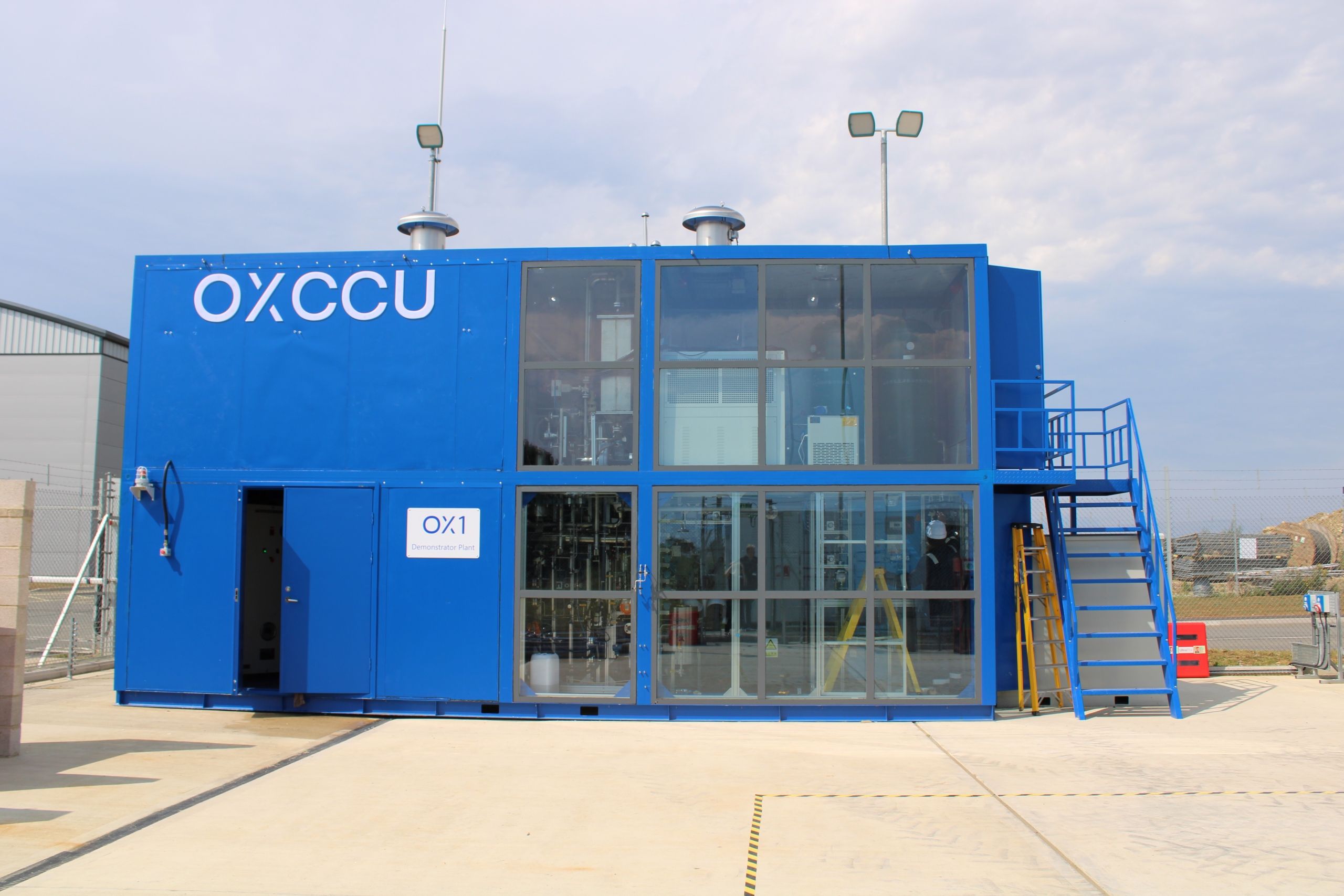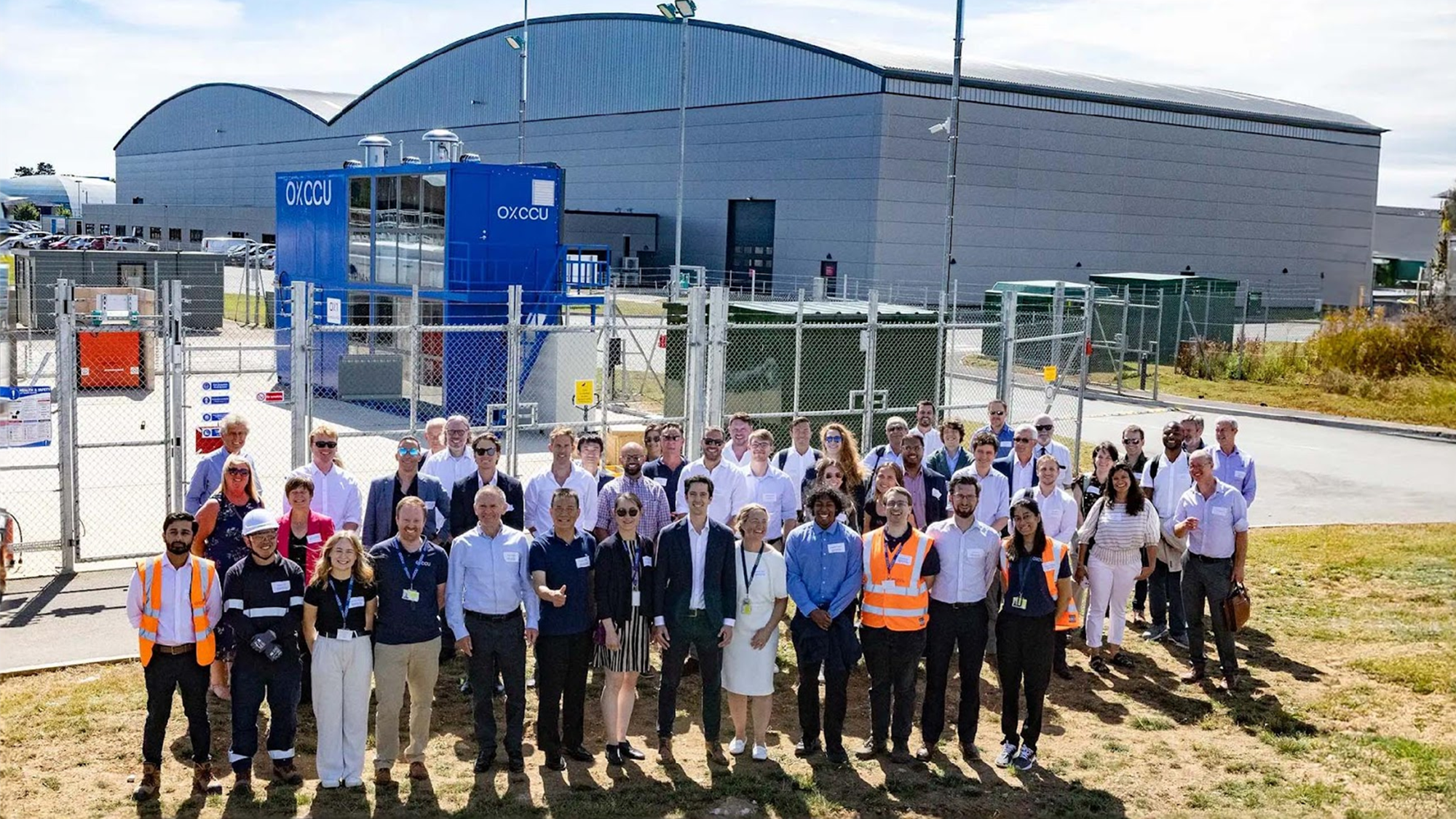3 min read - 30 Sep, 2025
OXCCU raises £20m to scale sustainable aviation fuel
OXCCU, an Oxford University spin-out developing a one-step process to convert waste carbon into sustainable aviation fuel (SAF), has raised £20.75m in an oversubscribed Series B funding round. This follows OXCCU’s £18m Series A raise in 2023.
This new capital will enable OXCCU to accelerate its commercialisation efforts, expand its operations, and advance its next phase of technology scale-up. It builds on the launch of the company’s OX1 demonstration plant at London Oxford Airport in 2024. Its second demonstration plant, OX2, is underway and will be fully operational in 2026.
The announcement comes at a time of growing regulatory momentum and market demand for sustainable fuels. However, despite mandates such as the UK SAF mandate and ReFuelEU, high production costs remain a major barrier to widespread adoption. SAF alternatives are currently estimated to be up to four times more expensive than fossil-based jet fuel, and OXCCU’s technology directly addresses this challenge.

OXCCU has raised £20.75m in Series B funding to scale its one-step process for converting waste carbon directly into sustainable aviation fuel / Picture: OXCCU
Andrew Symes, CEO of OXCCU, said: “In a market where capital is tight and investors are rightly selective, this raise is a testament to the strength of our science, the clarity of our mission, and the urgency of the problem we’re solving. Aviation needs a solution, and the serious lever is SAF. The challenge is SAF cost, and that is exactly what we are addressing at OXCCU.”
The funding reflects increasing recognition that driving down SAF production costs is crucial to unlocking aviation decarbonisation at scale. OXCCU’s process simplifies SAF production pathways by eliminating the need for reverse water gas shift or e-methanol steps. Instead, its patented iron-based catalyst enables the direct synthesis of jet-fuel-range hydrocarbons from gaseous waste carbon in a single exothermic reaction. This reduces capital and operating costs, and reduces the carbon intensity of the fuel.
The catalyst’s ability to operate with a wide range of carbon dioxide, carbon monoxide and hydrogen input gas compositions gives it the flexibility to efficiently convert different feedstocks such as reformed biogas, gasified wood waste, and pure carbon dioxide with hydrogen.

The latest funding follows OXCCU’s £18m Series A raise in 2023, further cementing its position as one of the UK’s most promising players in the global SAF market / Picture: OXCCU
This Series B round includes new investors Orlen VC, Safran Corporate Ventures, IAGi Ventures (the dedicated corporate venturing arm of the International Airlines Group, Hostplus, and TCVC, alongside existing backers Clean Energy Ventures, IP Group/Kiko Ventures, Aramco Ventures, Eni Next, Braavos Capital, and the University of Oxford.
Daniel Goldman, managing partner and co-founder of Clean Energy Ventures, added: “OXCCU stands out not only for its differentiated technology but also for the speed of its progress toward commercial plants. In just a few years, the company has advanced from the lab to a commercial demonstration facility, proving that waste carbon and hydrogen can be converted directly into jet fuel at low cost. That rapid progress is reshaping the sustainable aviation fuel market, unlocking the affordability that aviation needs to decarbonise.”
Jonathon Counsell, group sustainability director at International Airlines Group (IAG), said: “We recognise the need for the world to achieve net zero emissions by 2050 and for the aviation sector to play its part and to develop sustainably. IAG has been a leader in the sector, being the first airline group globally to commit to net zero by 2050. We are further committed to our goal of meeting 10% of our fuel needs with SAF by 2030. Meeting these goals will be supported by this investment into OXCCU, which is part of our strategy of developing new partnerships to produce next-generation fuels.”